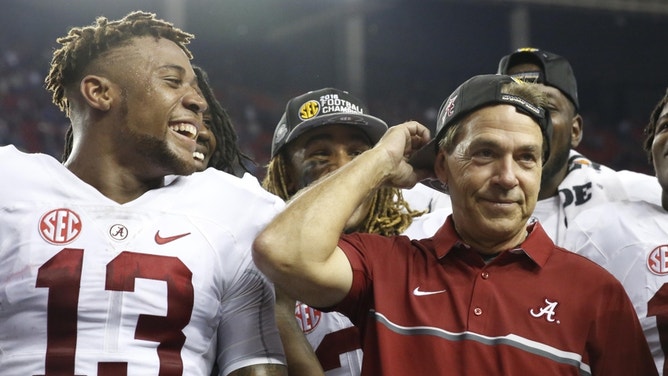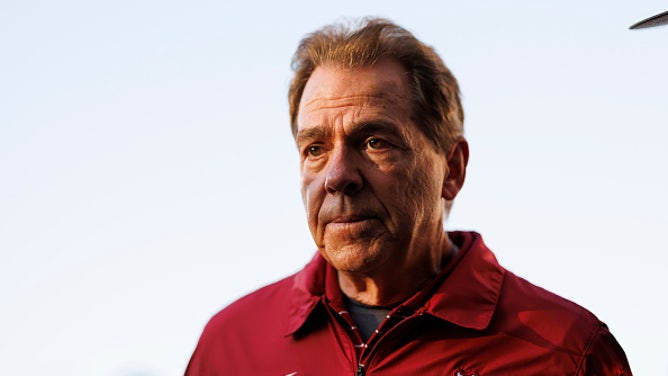Former Alabama Coach Nick Saban: NIL Isn’t Why I Quit But It Does Need Changes
Former Alabama head coach Nick Saban joined Bret Baier on "Special Report" Thursday night. Saban recapped a recent trip to Congress where the coach sounded an alarm about reshaping NIL because of its complete transformation of college football.
NIL opened the door for college athletes to get paid for their "name, image, and likeness." The process has neutered college football's recruiting by leaving it all up to endorsement deals and what's available.

Seven-time national champion, Nick Saban. (GETTY IMAGES)
Just look at how NIL siphoned the energy out of National Signing Day this year now that talent goes to the highest bidder or best NIL deal. There's also the transfer portal, which allows athletes to leapfrog between programs.
The landscape of college football underwent a transformation that Saban worries could be detrimental to the sport and football players.
Saban reflected on his plea for national legislation to allow NIL's collective-driven model to shift into a revenue-sharing model and hopefully reinstate college's impact on athletes' respective futures.
In clear disconnect with college football's modern look, Saban told Baier that reworking NIL doesn't make him any less of a ‘pro-player’ coach but that the model is simply not sustainable. He also said that NIL did not drive him to quit, contrary to all the speculation.
WATCH SABAN's APPEARANCE ON ‘SPECIAL REPORT’ w/ BRET BAIER:
Nick Saban On FncSpecial Report W Bret Baier
"I'm for college athletes having a seat at the table," Saban told Baier. "To try to come up with a solution for all this. But, instead of having a collective-driven name, image and likeness, I thought a revenue sharing with name, image and likeness would be a lot better system.
"We would be able to continue to support athletes and athletics, and all sports, football and basketball. We're going to be fine because they're revenue-producing. But all the non-revenue sports have always been funded by revenue sports. And we want to continue to be able to do that. So we have got to come up with a system that allows us to do that. And people giving all this money to collectives can give it back to the athletic department or to the university in some way. That will be beneficial to creating opportunities for student-athletes and helping them be successful."
With more money involved among young athletes come more problems.
Baier brought up Dartmouth basketball's latest demand for unionization to Saban. The coach highlighted how athletes are starting to become employees for universities under these new pay-for-play guidelines from NIL.
"I'm not anti-union, by any stretch of the imagination," Saban shared. "But I think that if you make college athletes, employees, you know, there are some disadvantages to that.
"They can be taxed on a lot more things than a lot of benefits that they get right now. Like, we pay approximately $93,000 per student athlete when you take in all the support that they get, whether it's academic support, food, all the things that, you know, go into their scholarship. So, if they have to pay tax on some of those benefits, that's not going to be very beneficial to them.
(Is there a need for NIL to change? Was the ‘traditional’ college football system better than the NIL/transfer portal era? Is it too soon to know? Send us your thoughts: alejandro.avila@outkick.com)

Nick Saban, former head coach of the Alabama Crimson Tide (Photo by Ryan Kang/Getty Images)
Follow along on X:@AlejandroAveela